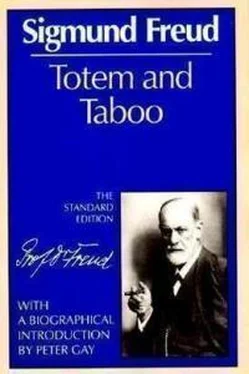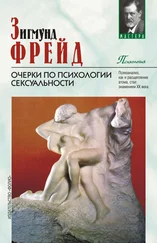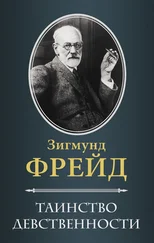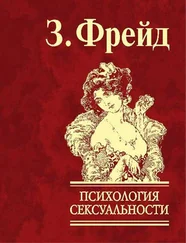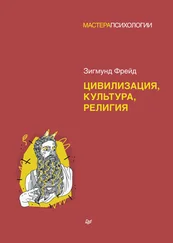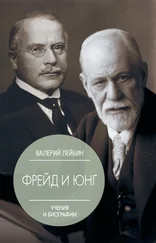Зигмунд Фрейд - Totem and Taboo
Здесь есть возможность читать онлайн «Зигмунд Фрейд - Totem and Taboo» весь текст электронной книги совершенно бесплатно (целиком полную версию без сокращений). В некоторых случаях можно слушать аудио, скачать через торрент в формате fb2 и присутствует краткое содержание. Год выпуска: 2014, Издательство: epubBooks Classics, Жанр: Психология, на английском языке. Описание произведения, (предисловие) а так же отзывы посетителей доступны на портале библиотеки ЛибКат.
- Название:Totem and Taboo
- Автор:
- Издательство:epubBooks Classics
- Жанр:
- Год:2014
- ISBN:нет данных
- Рейтинг книги:3 / 5. Голосов: 1
-
Избранное:Добавить в избранное
- Отзывы:
-
Ваша оценка:
- 60
- 1
- 2
- 3
- 4
- 5
Totem and Taboo: краткое содержание, описание и аннотация
Предлагаем к чтению аннотацию, описание, краткое содержание или предисловие (зависит от того, что написал сам автор книги «Totem and Taboo»). Если вы не нашли необходимую информацию о книге — напишите в комментариях, мы постараемся отыскать её.
Totem and Taboo — читать онлайн бесплатно полную книгу (весь текст) целиком
Ниже представлен текст книги, разбитый по страницам. Система сохранения места последней прочитанной страницы, позволяет с удобством читать онлайн бесплатно книгу «Totem and Taboo», без необходимости каждый раз заново искать на чём Вы остановились. Поставьте закладку, и сможете в любой момент перейти на страницу, на которой закончили чтение.
Интервал:
Закладка:
The strangeness of this taboo on names diminishes if we bear in mind that the savage looks upon his name as an essential part and an important possession of his personality, and that he ascribes the full significance of things to words. Our children do the same, as I have shown elsewhere, and therefore they are never satisfied with accepting a meaningless verbal similarity, but consistently conclude that when two things have identical names a deeper correspondence between them must exist. Numerous peculiarities of normal behaviour may lead civilized man to conclude that he too is not yet as far removed as he thinks from attributing the importance of things to mere names and feeling that his name has become peculiarly identified with his person. This is corroborated by psychoanalytic experiences, where there is much occasion to point out the importance of names in unconscious thought activity [74] Stekel, Abraham .
. As was to be expected, the compulsion neurotics behave just like savages in regard to names. They show the full ‘complex sensitiveness’ towards the utterance and hearing of special words (as do also other neurotics) and derive a good many, often serious, inhibitions from their treatment of their own name. One of these taboo patients whom I knew, had adopted the avoidance of writing down her name for fear that it might get into somebody’s hands who thus would come into possession of a piece of her personality. In her frenzied faithfulness, which she needed to protect herself against the temptations of her phantasy, she had created for herself the commandment, ‘not to give away anything of her personality’. To this belonged first of all her name, then by further application her hand–writing, so that she finally gave up writing.
Thus it no longer seems strange to us that savages should consider a dead person’s name as a part of his personality and that it should be subjected to the same taboo as the deceased. Calling a dead person by name can also be traced back to contact with him, so that we can turn our attention to the more inclusive problem of why this contact is visited with such a severe taboo.
The nearest explanation would point to the natural horror which a corpse inspires, especially in view of the changes so soon noticeable after death. Mourning for a dead person must also be considered as a sufficient motive for everything which has reference to him. But horror of the corpse evidently does not cover all the details of taboo rules, and mourning can never explain to us why the mention of the dead is a severe insult to his survivors. On the contrary, mourning loves to preoccupy itself with the deceased, to elaborate his memory, and preserve it for the longest possible time. Something besides mourning must be made responsible for the peculiarities of taboo customs, something which evidently serves a different purpose. It is this very taboo on names which reveals this still unknown motive, and if the customs did not tell us about it we would find it out from the statements of the mourning savages themselves.
For they do not conceal the fact that they fear the presence and the return of the spirit of a dead person; they practise a host of ceremonies to keep him off and banish him [75] Frazer, l.c. , p. 353, cites the Tuaregs of the Sahara as an example of such an acknowledgment.
. They look upon the mention of his name as a conjuration which must result in his immediate presence [76] Perhaps this condition is to be added: as long as any part of his physical remains exist. Frazer, l.c. , p. 372.
. They therefore consistently do everything to avoid conjuring and awakening a dead person. They disguise themselves in order that the spirit may not recognize them [77] On the Nikobar Islands , Frazer, l.c. , p. 382.
, they distort either his name or their own, and become infuriated when a ruthless stranger incites the spirit against his survivors by mentioning his name. We can hardly avoid the conclusion that they suffer, according to Wundt’s expression, from the fear of “his soul now turned into a demon,” [78] Wundt, Religion and Myth , Vol. II, p. 49.
.
With this understanding we approach Wundt’s conception who, as we have heard, sees the nature of taboo in the fear of demons.
The assumption which this theory makes, namely, that immediately after death the beloved member of a family becomes a demon, from whom the survivors have nothing but hostility to expect, so that they must protect themselves by every means from his evil desires, is so peculiar that our first impulse is not to believe it. Yet almost all competent authors agree as to this interpretation of primitive races. Westermarck [79] The Origin and Development of Moral Conceptions , see section entitled “Attitude Towards the Dead,” Vol. II, p. 424. Both the notes and the text show an abundance of corroborating, and often very characteristic testimony, e.g., the Maori believed that “the nearest and most beloved relatives changed their nature after death and bore ill–will even to their former favourites.” The Austral negroes believe that every dead person is for a long time malevolent; the closer the relationship the greater the fear. The Central Eskimos are dominated by the idea that the dead come to rest very late and that at first they are to be feared as mischievous spirits who frequently hover about the village to spread illness, death and other evils. (Boas.)
, who, in my opinion, gives altogether too little consideration to taboo, makes this statement: “On the whole facts lead me to conclude that the dead are more frequently regarded as enemies than as friends and that Jevons and Grant Allen are wrong in their assertion that it was formerly believed that the malevolence of the dead was as a rule directed only against strangers, while they were paternally concerned about the life and welfare of their descendants and the members of their clan.”
R. Kleinpaul has written an impressive book in which he makes use of the remnants of the old belief in souls among civilized races to show the relation between the living and the dead [80] R. Kleinpaul: The Living and the Dead in Folklore, Religion and Myth , 1898.
. According to him too, this relation culminates in the conviction that the dead, thirsting for blood, draw the living after them. The living did not feel themselves safe from the persecutions of the dead until a body of water had been put between them. That is why it was preferred to bury the dead on islands or to bring them to the other side of a river: the expressions ‘here’ and ‘beyond’ originated in this way. Later moderation has restricted the malevolence of the dead to those categories where a peculiar right to feel rancour had to be admitted, such as the murdered who pursue their murderer as evil spirits, and those who, like brides, had died with their longings unsatisfied. Kleinpaul believes that originally, however, the dead were all vampires, who bore ill–will to the living, and strove to harm them and deprive them of life. It was the corpse that first furnished the conception of an evil spirit.
The hypothesis that those whom we love best turn into demons after death obviously allows us to put a further question. What prompted primitive races to ascribe such a change of sentiment to the beloved dead? Why did they make demons out of them? According to Westermarck this question is easily answered [81] l.c. , p. 426.
. “As death is usually considered the worst calamity that can overtake man, it is believed that the deceased are very dissatisfied with their lot. Primitive races believe that death comes only through being slain, whether by violence or by magic, and this is considered already sufficient reason for the soul to be vindictive and irritable. The soul presumably envies the living and longs for the company of its former kin; we can therefore understand that the soul should seek to kill with them diseases in order to be re–united with them….
Интервал:
Закладка:
Похожие книги на «Totem and Taboo»
Представляем Вашему вниманию похожие книги на «Totem and Taboo» списком для выбора. Мы отобрали схожую по названию и смыслу литературу в надежде предоставить читателям больше вариантов отыскать новые, интересные, ещё непрочитанные произведения.
Обсуждение, отзывы о книге «Totem and Taboo» и просто собственные мнения читателей. Оставьте ваши комментарии, напишите, что Вы думаете о произведении, его смысле или главных героях. Укажите что конкретно понравилось, а что нет, и почему Вы так считаете.
